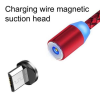GTP
Well-Known Member
- Reaction score
- 9,998
- Location
- Adelaide, Australia
If one does a little digging into the various brands of Chinese PSU's, as an example, you'll find that that $430 Corsair PSU is also made by the same company that made the $25 Penguin PSU.Indeed, because it's well known that manufacturers in China and India and Mexico very often brand exactly the same items coming of exactly the same production lines with different names from major brands to house brands (e.g. Duralast, SuperTech, etc.) to their own branding.
No one sets up separate lines for each and every brand their factory produces. It's way, way cheaper to keep producing what you produced for Bosch, or Lenovo, or whatever, as you've met their specs, and package it as something else. There are no laws against that unless there is proprietary technology involved, and in the majority of cases there's just not.
I've purchased a lot of Chinese "no name" automotive service items, as but one example, that were every bit as good as a number of the house and name brands for the same items. This was no surprise, as they probably rolled off the same lines and were put in a different brand box with a different label, but were, in fact, the same item.
There are very few actual manufacturers, around the globe, when compared to the number of brand names that use them to make what they sell under well-known and long-lived brand names. A number of these brands haven't made these products thing their own factories in years.
Over my 22 years in business I have personally, probably built over 200 desktop computers. I would have replaced maybe 100 PSU's in client PC's doing repair work on systems I didn't build.
I cannot remember ever having to replace a PSU in a system I personally built.
These PSU's were from Penguin, WideTech, Harpo and many others I've forgotten the names of.
Most of these replacement PSU's were for desktop PC's in home/SoHo situations.
PSU's in Business PC's were replaced with generally more expensive ones but really - a Penguin PSU would have been perfectly functional.

